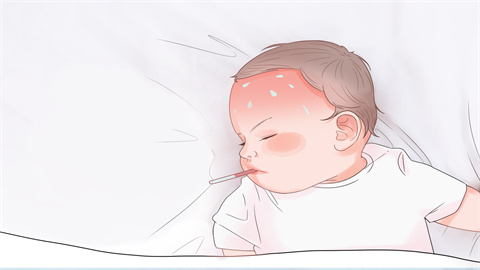How is infantile急疹 (roseola) caused?
In general, infantile急疹 (roseola infantum) may be caused by factors such as incomplete immune system development, decreased resistance after catching a chill, human herpesvirus 6 (HHV-6) infection, human herpesvirus 7 (HHV-7) infection, or contact with virus carriers. It is recommended to seek timely medical attention, identify the underlying cause, and undergo symptomatic treatment under a doctor's guidance. A detailed analysis is as follows:

1. Incomplete immune system development: Infants' immune systems are not yet fully matured, making them more susceptible to viral infections that may lead to急疹 (roseola). In daily care, ensure balanced nutrition for the infant, provide moderate sun exposure, and gradually introduce complementary foods according to age to enhance physical resistance.
2. Decreased resistance after catching a chill: When infants catch a chill, their physical resistance temporarily decreases, making it easier for viruses to cause infection. Adjust the infant's clothing promptly according to temperature changes, avoid chills, and maintain a stable indoor temperature between 22-26°C.
3. Human herpesvirus 6 infection: This virus is a primary causative agent of infantile急疹 (roseola) and can enter the infant's body through droplets or direct contact, triggering the disease. If high fever occurs, use medications such as acetaminophen suspension drops, ibuprofen suspension, or pediatric Chai Gui antipyretic granules as directed by a physician to reduce fever.
4. Human herpesvirus 7 infection: Infection with this virus can also cause infantile急疹 (roseola). Symptoms are similar to those of HHV-6 infection and often include fever and rash. During fever, use medications such as acetaminophen oral suspension, ibuprofen granules, or pediatric豉翘清热 granules as directed by a physician to alleviate symptoms.
5. Contact with virus carriers: After coming into contact with adults or children carrying HHV-6 or HHV-7, infants may become infected via close contact transmission. Avoid taking infants to crowded places, and promptly clean the infant's hands and face after contact with others to reduce the chance of viral exposure.
In daily care, maintain good personal hygiene for the infant, including frequent handwashing and changing clothes regularly. Ensure proper indoor ventilation and regularly disinfect toys and eating utensils used by the infant. During fever, provide additional hydration to the infant and avoid overdressing, which may hinder heat dissipation.




